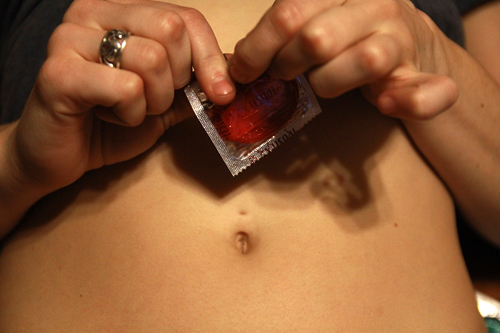It is estimated that one in every four college students will contract a sexually transmitted disease during their college years. Even more will face the possibility of becoming a parent before they’re ready.
Decisions, decisions
It is estimated that one in every four college students will contract a sexually transmitted disease during their college years. Even more will face the possibility of becoming a parent before they’re ready.
If you’re reading this, I’m guessing you do not want to be one of them. No sexually active person should be without some form of birth control. Different people use different birth control methods depending on how sexually active they are and how many people they’re involved with.

Best emergency birth control
Plan B. This one-time-use pill is taken up to 120 hours after intercourse. The sooner it is taken, the more effective it is. In cases of rape or problems with contraception, such as a condom that breaks or a diaphragm that slips out of place, the morning-after pill is a good option. It is perfectly safe and relatively cheap, costing between $10 and $70, but does nothing to prevent STDs.
Easiest overall
The condom. With only a 2 percent chance of pregnancy, condoms protect users against STDs as well as protecting men against urinary tract infections, which sometimes occur in both men and women when having sex after a long period without sexual activity. Condoms cost around $1 each but are available for free at a number of places.
For those who are allergic to latex: Plastic condoms are also available. Those who do not like using a condom can also consider using a female condom. A female condom is only slightly more expensive and also prevents STDs. However, there is a higher chance of a female condom accidentally slipping into the vagina, raising the chances of pregnancy to 5 percent.
Best long-term birth control
The Intra-Uterine Device (IUD). This small device is implanted by a medical professional and lasts for a long time—some up to 12 years. Once in place, it is often impossible to feel (unless one is very determined), and as such is often forgotten.
This does not prevent STDs, but it effectively prevents pregnancies until removed, again, by a medical professional. It is a hefty, one-time price, usually costing between $500 and $1,000. But they are certainly an option for those who don’t want to get pregnant for years to come.
Best for privacy
The birth control shot. Not only does the shot have the lowest chance of pregnancy, it is also the most private. For anyone who lives with family or roommates and does not want anyone they live with to know about their sexual activity, the birth control shot is not a physical item that needs to be hidden.
Fewer than one in every 100 women become pregnant with the birth control shot as long as they use it correctly. This method of birth control can be expensive—the shot itself costs up to $75 in addition to required examination fees—but it may be worth it.
The shot lasts up to three months and effectively prevents pregnancy, but couples may also want to use condom as the shot does not prevent STDs.
Best for disease-free oral sex
The dental dam. While we’ve discussed condoms and how they are great at preventing STDs, the dental dam is great for protecting the parts that don’t stick out. The dental dam is a thin sheet of latex or plastic spread over the vagina and/or anus during oral sex. When used correctly, it effectively protects against nearly all STDs, including herpes and HPV.
Dental dams are generally affordable and easy to use—just rinse off and check for holes. They are not reusable, but their effectiveness makes them a worthwhile investment.
The Center for Student Health and Counseling is an excellent resource for birth control. Not only can one find condoms for free at SHAC, they carry a variety of different pills for prescription refills. Be sure to take advantage of SHAC’s resources, and always use protection.





